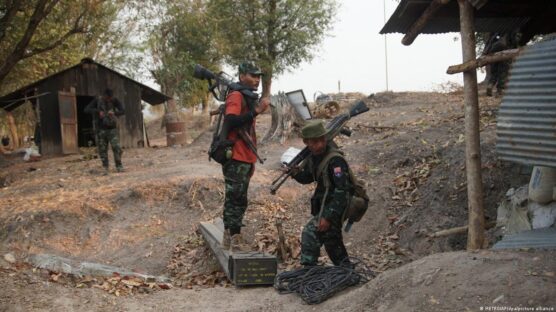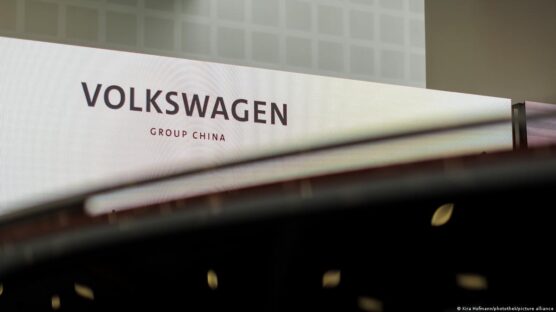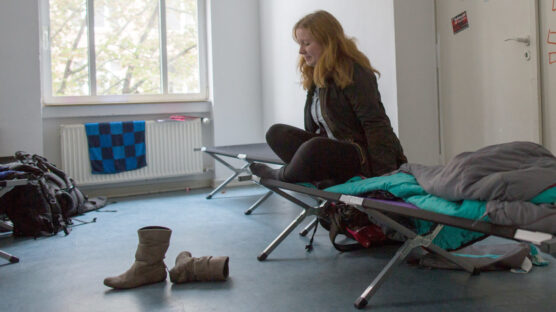The next generation of security screening tech
By Bloomberg
08 July 2018 |
6:00 am
AC Global Risk is a Silicon Valley-based startup, using voice recognition technology in ways it hasn't really been used before: screening large groups of people for possible security risks. Co-founder and CEO Alex Martin explains the technology and the ethical debate around it.
In this article
Related
Related
11 Apr
The Myanmar military and an ethnic minority armed group have clashed for a second day near Myawaddy — an important frontier trading point. Thailand has said it is prepared for tens of thousands of refugees.
4 days ago
It is the first of its kind, its developers say: a microrobot which can navigate in a cell network and stimulate individual cells in a targeted manner. The discovery has the potential for new treatment methods for patients battling cancer or other diseases, according to lead researcher Berna Ozkale Edelmann.
13 Apr
Volkswagen will expand its production and research facilities in Anhui province as the German automaker looks to reclaim its title as China's top-selling car brand.
14 Apr
TikTok is seemingly developing a photo-sharing app like Instagram.
2 days ago
With Nigeria’s key lending rate at 24.75 per cent, developers in Nigeria’s real estate sector say the rate is fast impacting the growth of the industry. How are developers adapting to market shifts and new opportunities amid these challenges? Ayoolanrewaju Kuyebi, the MD and CEO GMH Luxury joins CNBC Africa for this discussion.
2 days ago
In Nigeria, a pharmacist's club create awareness about andropause. They de-stigmatizes andropause and advocates regularly healthy checks.
Latest
1 day ago
Find these stories and much more when you grab a copy of The Guardian on Friday.
1 day ago
Housing is the social issue of the 21st century, German politicians and experts say time and again. And yet there's no improvement in sight, especially in cities, where affordable housing is in short supply.
1 day ago
According to the International Monetary Fund (IMF), a 10% rise in the dollar on the currency market would push down real gross domestic product (GDP) in emerging economies by 1.9% after one year, with adverse economic effects lasting more than two years
1 day ago
As the US government and its allies mull new sanctions on Iran after Tehran's missile and drone attack on Israel, we look at whether existing sanctions have been effective at stemming the flow of Iranian oil to global markets.
1 day ago
The Venice Biennale, which runs this year from April 20 to November 24, is one of the world's most prestigious international art shows, alongside the documents in the German city of Kassel.
1 day ago
Indonesia is aiming to reduce its dependence on fossil fuels, with 30 percent of the country's energy slated to come from biodiesel by 2030. But the plan has caused alarm among environmental groups.
×

Get the latest news delivered straight to your inbox every day of the week. Stay informed with the Guardian’s leading coverage of Nigerian and world news, business, technology and sports.


















0 Comments
We will review and take appropriate action.